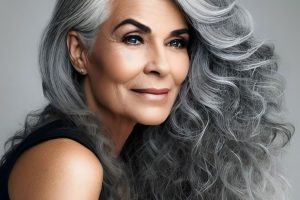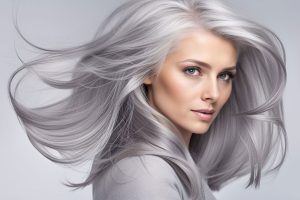Revitalizing Aging Skin: A Comprehensive Guide to Professional Treatments and Topical Solutions
As individuals age, the skin undergoes various changes, showing signs of wear and tear, loss of elasticity, and discoloration. Yet, despite these natural processes, we are not helpless in the fight against skin aging. By leveraging expertly designed treatment programs and scientifically formulated products, we can significantly enhance the appearance of aging skin, restore its vitality, and slow down future aging signs.

Aging Skin
The Importance of Personalized Skin Care Programs
One size does not fit all when it comes to skin care. Each person’s skin is unique, with distinct characteristics and specific needs. Therefore, it’s paramount to design a professional skin care program tailored to the client’s skin type and individual requirements. This approach allows for targeted treatments and care that address the specific issues each person faces, ensuring optimal results.
A professionally designed skin care program for aging skin typically includes several critical components: a hydrating sunscreen, an exfoliating product with alpha or beta hydroxy acid, and innovative products containing peptides and topical antioxidants. Let’s delve into the function and benefits of each.
Hydrating Sunscreen: A Daily Essential
First and foremost, a good hydrating sunscreen is an absolute must for any anti-aging skin care regimen. The skin-damaging effects of UV radiation are well documented, and daily sunscreen application can protect the skin from this harm. Moreover, a hydrating sunscreen serves a dual purpose – it protects the skin from sun damage while providing hydration, helping the skin retain moisture and appear plump and youthful.
Alpha or Beta Hydroxy Acid: The Power of Exfoliation
As we age, the natural cell turnover process slows down, leading to a buildup of dead skin cells that can leave the complexion looking dull, rough, and aged. Alpha hydroxy acids (AHAs) and beta hydroxy acids (BHAs) are powerful exfoliators that aid in shedding these dead skin cells, promoting cell renewal, and revealing a brighter, more radiant complexion underneath. By stimulating this rejuvenation process, these acids can improve skin texture and tone, diminish the appearance of fine lines and wrinkles, and enhance the overall appearance of the skin.
The Role of Peptides and Antioxidants
State-of-the-art ingredients like peptides and topical antioxidants are increasingly being incorporated in products designed for aging skin. Peptides are small protein fragments that stimulate collagen production, a vital component of the skin that decreases with age. By boosting collagen levels, peptides help the skin regain its firmness and elasticity, reducing the appearance of wrinkles and sagging.
Topical antioxidants, on the other hand, fight against free radicals, unstable molecules that cause oxidative stress and damage to skin cells, contributing to skin aging. By neutralizing these harmful molecules, antioxidants can help protect the skin from damage, reduce inflammation, and improve skin health and appearance.
In conclusion, the appearance of aging skin can be greatly improved by a professionally designed program that includes these critical components. By addressing the unique needs of each client’s skin and harnessing the power of scientifically proven ingredients, we can revitalize aging skin, restore its youthful glow, and enhance its health and resilience for the future.






